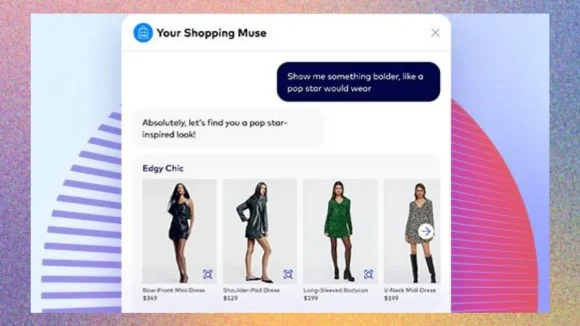Mastercard is launching a shopping assistant called ‘Shopping Muse.’ The tool will provide a personalized online shopping experience based on product recommendations as chosen by advanced artificial intelligence (AI) technology.
Mastercard promises “simpler shopping, faster decisions, and increased conversion” as Shopping Muse guides customers through large product catalogs. The tool is now available for Early Access.
While it will focus on the fashion industry first, Shopping Muse could be extended to other retail categories, such as furniture and groceries.
Shopping Muse: How it works
Shopping Muse is powered by AffinityML and can guess a customer’s next purchase. Because it understands shoppers’ needs, it could suggest product bundles to optimize on savings and efficiency.
ALSO READ: Can LLMs unlock self-driving potential? Ghost Auto says yes
It uses multi-faceted machine learning models and incorporates natural language processing (NLP). So, it not only generates human language, but it comprehends it as well. Apart from handling complex queries, it also understands colloquial terms.
Shopping Muse is fully customizable based on your product feed. So a shopper could, for example, ask the tool to “show me outfits from my favorite celebrity” and it would understand the request.
Beyond traditional search queries
Beyond standard text queries, Shopping Muse also uses VisualML image recognition. This means a customer could upload a picture of “their perfect look.” The tool would then based recommendations just like a personal shopper might.
This level of hyper personalization means it provides people with the exact shopping experience they want. Says Ori Bauer, the CEO of Dynamic Yield by Mastercard: “AI-driven innovation is the key to unlocking immersive and tailored online shopping.”
“By harnessing the power of generative AI in Shopping Muse, we’re meeting the consumer’s standards and making shopping smarter and more seamless than ever,” Bauer explains.
The bigger picture
Mastercard’s initiative aligns with recent trends – such as Google’s AI-generated gift recommendations and Walmart’s ‘My Assistant,’ a tool designed to empower office associates.
ALSO READ: Walmart’s ‘My Assistant’ revolutionizes work efficiency
Since over a quarter of retailers already leverage generative AI, the demand for tools such as Shopping Muse is set to grow. In fact, A Gartner study suggests widespread adoption of generative AI in customer service and support by 2025.
Gartner says: “Generative AI’s biggest impact is likely to be on customer experience. According to a recent poll, 38% of leaders see improving customer experience and retention as the primary purpose of initiatives to deploy applications trained on large language models.”
Mastercard’s Shopping Muse stands as a testament to the transformative power of AI in retail.
About the author
Cheryl has contributed to various international publications, with a fervor for data and technology. She explores the intersection of emerging tech trends with logistics, focusing on how digital innovations are reshaping industries on a global scale. When she's not dissecting the latest developments in AI-driven innovation and digital solutions, Cheryl can be found gaming, kickboxing, or navigating the novel niches of consumer gadgetry.










